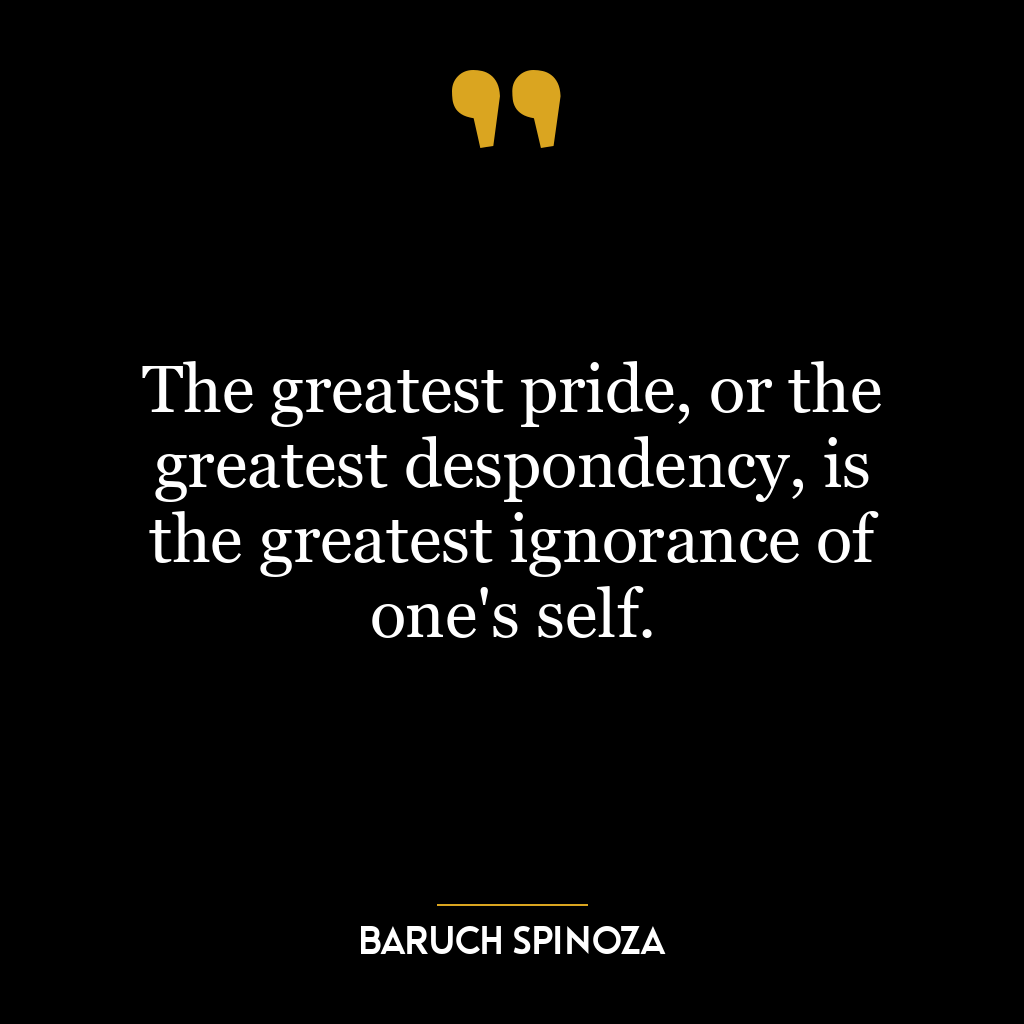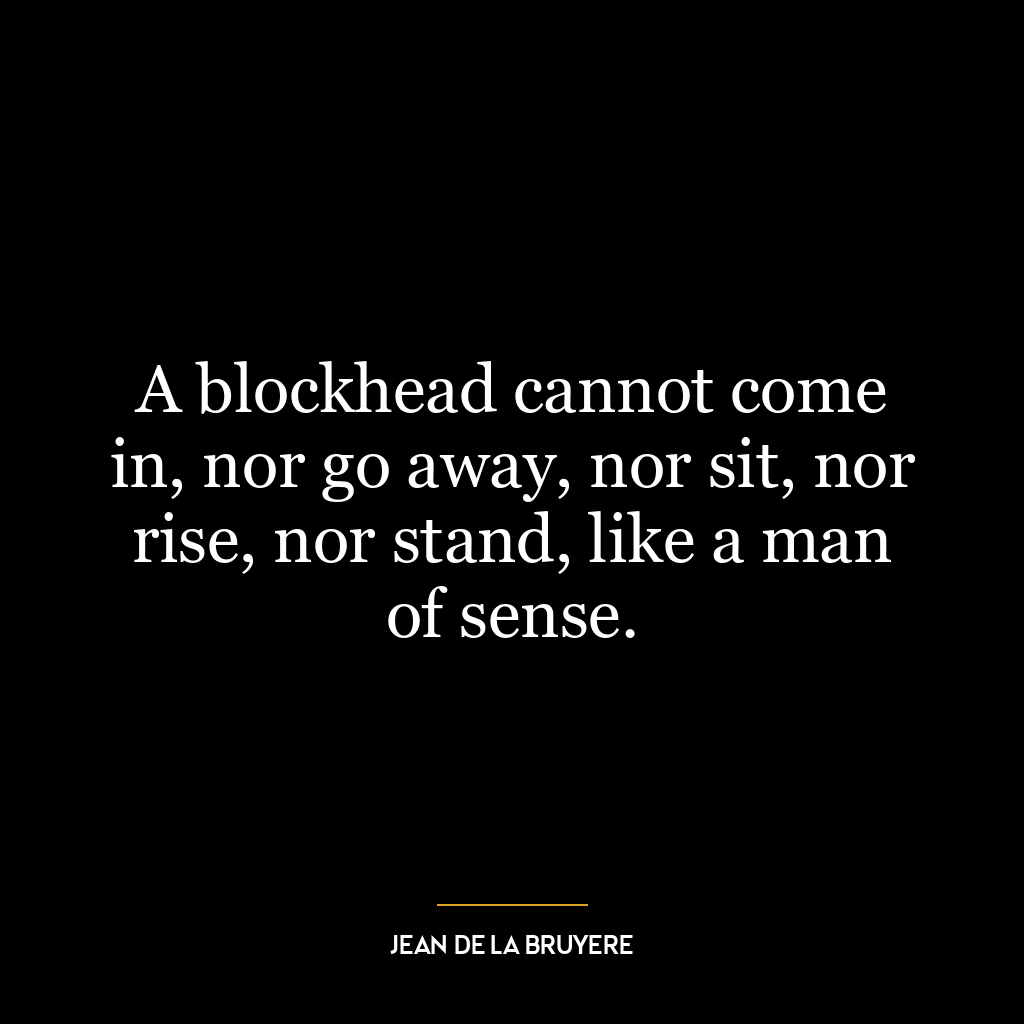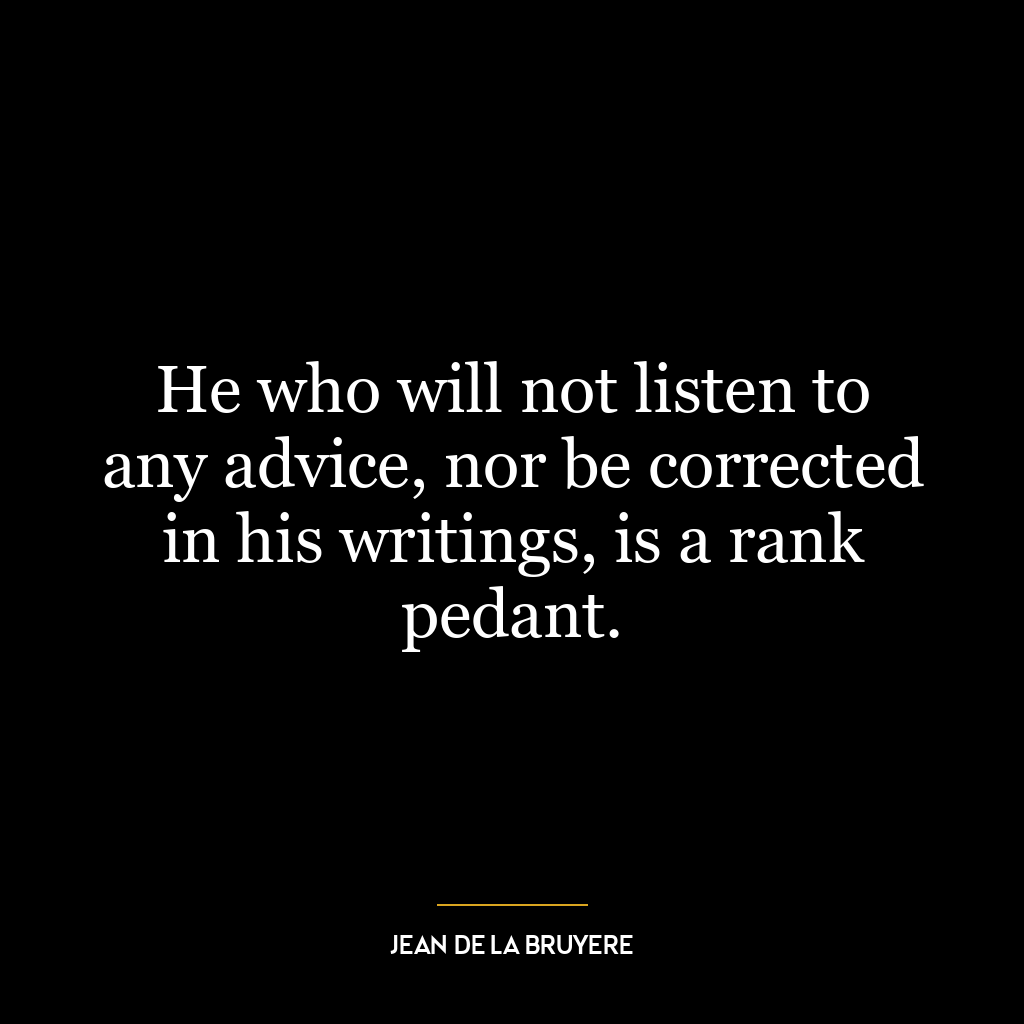The greatest pride, or the greatest despondency, is the greatest ignorance of one’s self.
This quote suggests that extreme pride or extreme despondency (deep sadness or despair) both stem from a lack of self-awareness or self-understanding. In other words, if you are excessively proud, you’re likely ignoring or denying your flaws and weaknesses. On the other hand, if you’re extremely despondent, you’re likely overlooking or undervaluing your strengths and potential.
The quote emphasizes the importance of balance and self-knowledge. It is cautioning against the extremes of self-perception. Too much pride can lead to arrogance and a lack of empathy, while too much despondency can lead to self-deprecation and hopelessness. Both states hinder personal growth and development, as they distort reality and prevent us from seeing ourselves clearly.
Applying this idea in today’s world or in personal development, it can be seen as a call for introspection and self-analysis. In an era where social media often amplifies the best parts of our lives and hides the worst, it’s easy to fall into the trap of either overestimating or underestimating our worth based on the highlight reels of others.
In terms of personal development, this quote can be a reminder to regularly check in with ourselves, to acknowledge both our strengths and weaknesses, and to work on improving and growing in a balanced way. It encourages us to strive for self-awareness and authenticity, rather than getting caught up in pride or despondency.
In essence, it’s a call to understand and accept our complete self, the good and the bad, the strengths and the weaknesses. This balanced self-perception is the key to genuine self-improvement and personal development.











